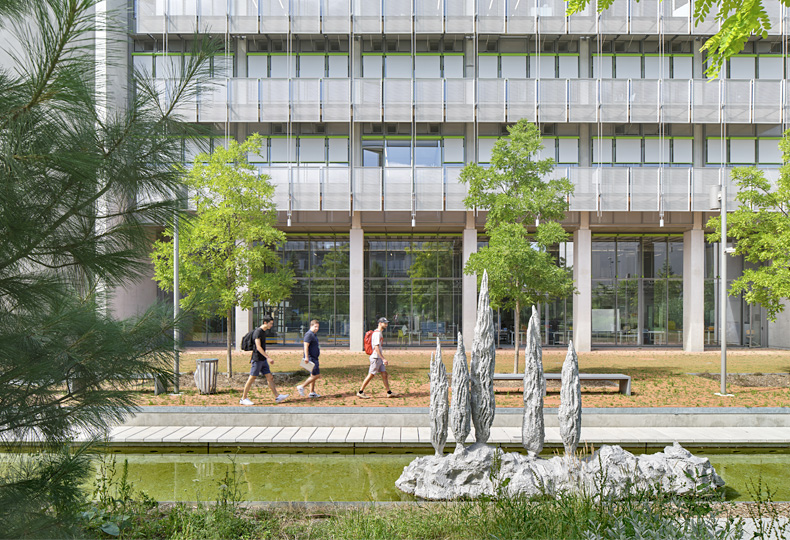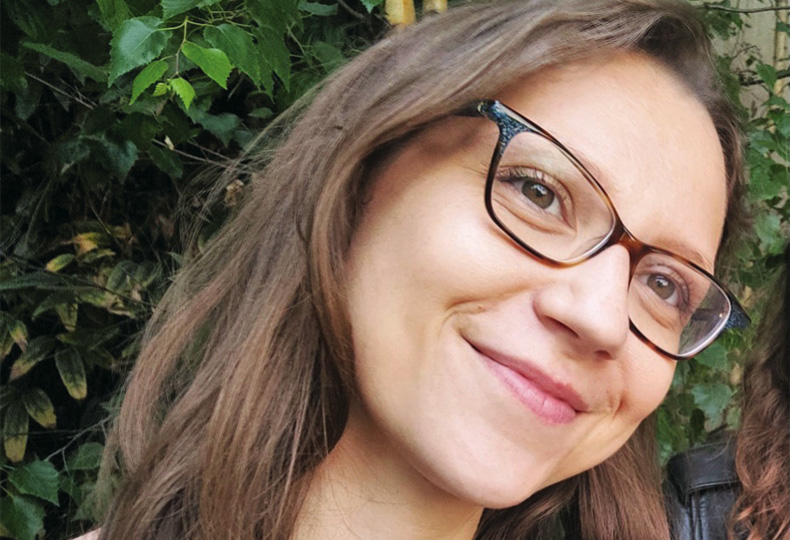New Master 2: English for Specific Purposes

Research Master 2 "English for Specific Purposes"
Innovative training in cutting-edge research in English-language studies
The new "Master 2 research in English-speaking fields" is an interdisciplinary research program, at the crossroads of different disciplines in English-speaking studies: specialised English, didactics, civilisation.
This training is structured around two common core areas:
- A strong positioning around the initiation to research (epistemology of English studies, history of science, research support);
- Didactics of English, to emphasize the contributions of research to pedagogical practice, and to train future teachers in higher education (LANSAD but also LLCER or LEA).
In addition to the core curriculum, blocks (2 UE) will be offered, for students to choose from according to their field of research:
- Specialized English/analysis of specialized discourse
- Civilization
- Didactics of English
A master's degree integrated into the Humanities-Heritage Sciences Graduate School of the Université Paris-Saclay
The Master 2 belongs, along with six other Master's degrees, to the Humanities-Heritage Sciences Graduate School of the University of Paris-Saclay, which allows students to be in contact with researchers and to pursue projects with the networks of researchers at the University of Paris-Cité.
Testimony of Claire KLOPPMANN-LAMBERT, PhD in Specialized English
Claire KLOPPMANN-LAMBERT, alumni, PhD in Specialized English, is an ATER at Sorbonne nouvelle University. She talks about the Master 2 in Specialized English at ENS Paris-Saclay.
After a hypokhâgne and a khâgne with an English option at the Lycée Henri IV, I chose ENS Cachan (now ENS Paris-Saclay) and the Department of Languages because I wanted to continue my training as an Anglicist.
I liked the idea of joining a grande école that trains in both the basic sciences and the humanities and social sciences. I have always loved languages and the so-called "hard" sciences and I had the intuition that there could be great synergies between these disciplines.
The training I received at the Department of Languages (and at the Université Paris Cité), especially in English for Special Purposes, allowed me to study professional languages, especially English for architecture and academic English for science.
After my training at the ENS Paris-Saclay, I continued with a thesis in English for Special Purposes at the Université Paris Cité and I am now an ATER (Attaché Temporaire d'Enseignement et de Recherche) at the Université Sorbonne Nouvelle.
I chose to do the Master's degree in Specialty English in 2017. What I enjoyed most was conducting a collaborative research project on the mistakes young French-speaking researchers make when writing scientific abstracts in English. It was very stimulating to work with a teacher-researcher from the DASP (Specialized English Discourse) research team and I could clearly see applications for improving English courses and language certifications in France.
On the other hand, this Master's degree allowed me to learn about the tools for discourse analysis in English (concordancers), to discover the challenges of research in specialized English, and to write a dissertation on the English of architecture, all the while teaching specialized English to students from other departments. It was the perfect time for me to mature a thesis project.
Today, I have defended my thesis in Specialty English and this has reinforced my idea of teaching English, especially in LANSAD (Languages for Specialists in Other Disciplines), and of pursuing research in Specialty English.
Training and partners
- Université Paris-Cité: Anglophone Studies (EA) and Intercultural Studies of Applied Languages (EILA)
- University of Versailles-Saint-Quentin
- University of Evry-Val d'Essonne
- The Group for Study and Research in Specialized English (GERAS), a daughter society of the Society of Higher Education Anglicists (SAES).
English-speaking partners (non-exhaustive list)
- USA : Amherst (Massachusetts), Sarah Lawrence College (New York), Columbia, Cornell (New York), Tulane (Los Angeles), Chicago (Illinois), Washington (District of Columbia)
- Canada : Glendon College (Toronto), Université de Waterloo (Ontario), Université d'Ottawa
- Australie : Sydney (New South Wales)
- Écosse : Édimbourg, Glasgow
- Angleterre : York, Liverpool, Newcastle, Cambridge, Reading, Northampton, Leicester
- Irlande : Trinity College, Dublin
The opportunities
The Master 2 "English-speaking fields" trains future teachers and researchers in higher education in English-speaking studies.
The main opportunities are:
- Continuation of studies in doctoral thesis;
- Careers in higher education in English-speaking studies (lecturers, university professors);
- Positions as associate or certified professors in higher education (PRAG/PRCE, teachers in CPGE, IUT, BTS).
Target audience
- This training is intended for students with a M1 obtained in a university.
- The master 2 is also proposed within the framework of the continuing education, with 3 face-to-face meetings per year.
Program
The Master 2 research program "English-speaking fields" is structured around two parts: a common core where all courses are compulsory and a specialization block chosen according to the student's research field.
Common core (pre-doctoral skills)
- Epistemology of Anglophone Studies: introduction to theoretical frameworks in Anglophone fields (English for Special Purposes, civilization, didactics, visual arts...) ;
- Pedagogical practices in the LANSAD area;
- History of Science;
- Scientific and academic writing;
- Participation in the intensive week of the Graduate School Humanities-Heritage Sciences in January, participation in various scientific events at the (GS-HSP Masters Day in March, GERAS conference...).
6 blocks of specialization
- Anglophone Discourse Analysis block
- Contemporary Research in English and Specialized English Didactics block
- Linguistics, Corpus, Applications block (opening in September 2023)
- Anglophone fields and cultures block
- Block Translational Studies, the literary integrating the specialized (opening September 2023)
- English-speaking fields, disciplinary interfaces (opening September 2023)
2 "à la carte" EUs
The modular nature of the program allows students to choose two courses from a catalog of courses, one in methodology and the other in computerized research tools, particularly in textual analysis and corpus linguistics.
The preparation of the dissertation is done under the direction of the many partners involved in the training.

